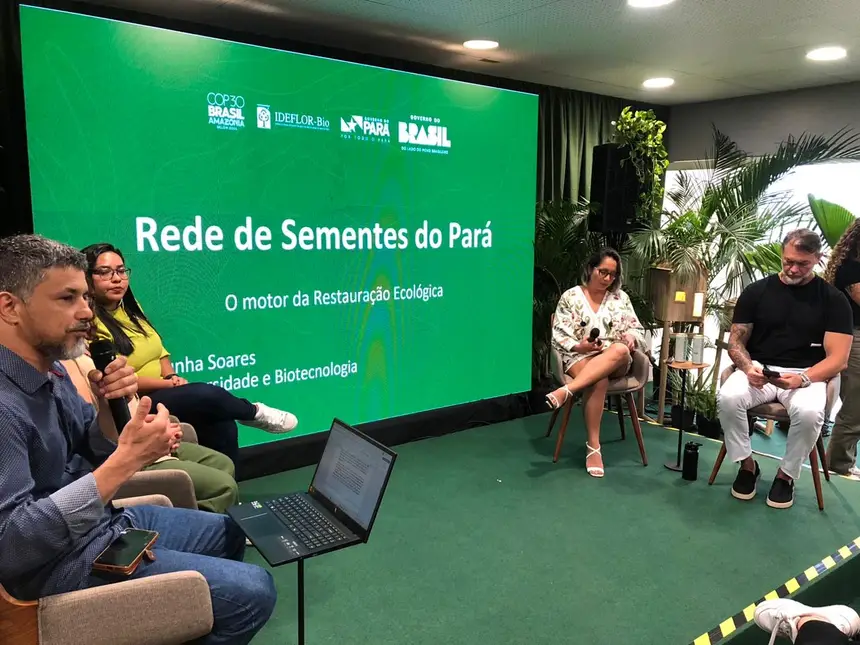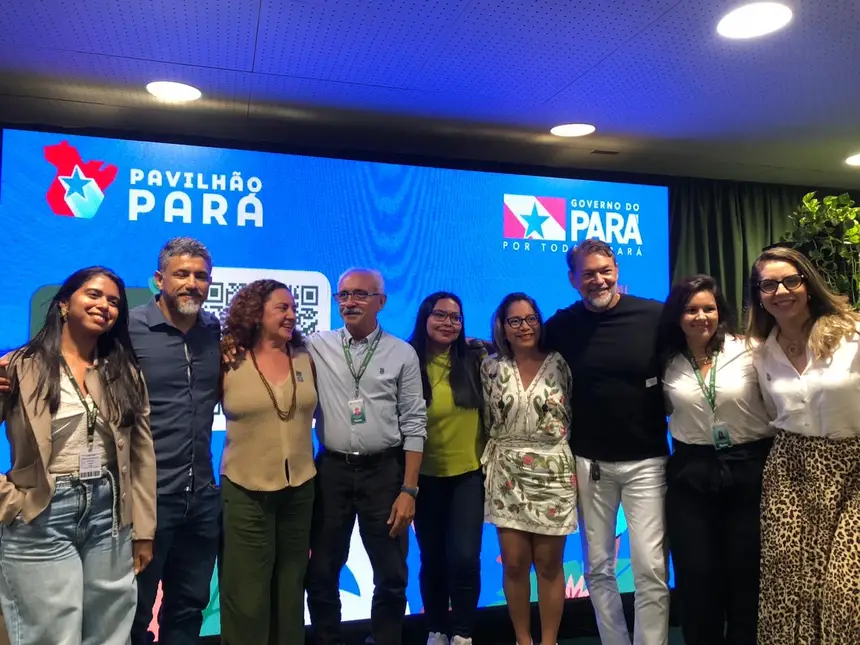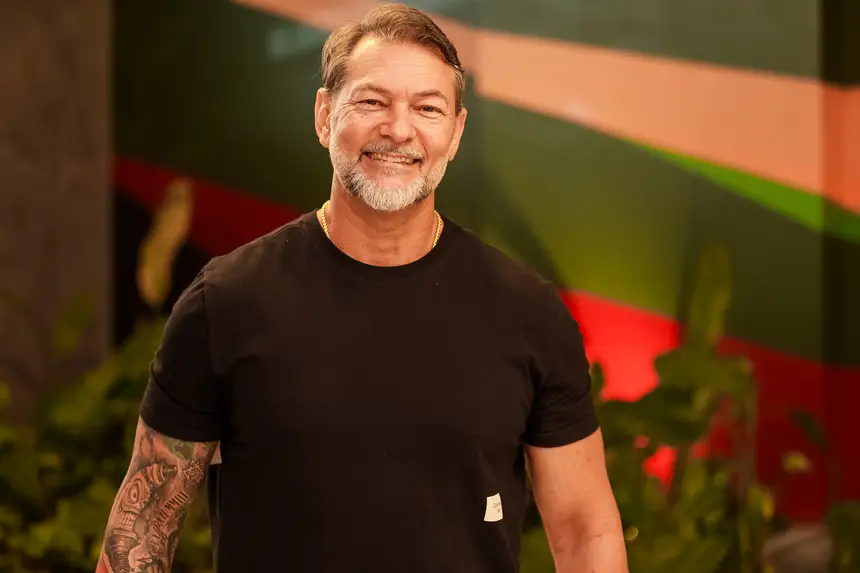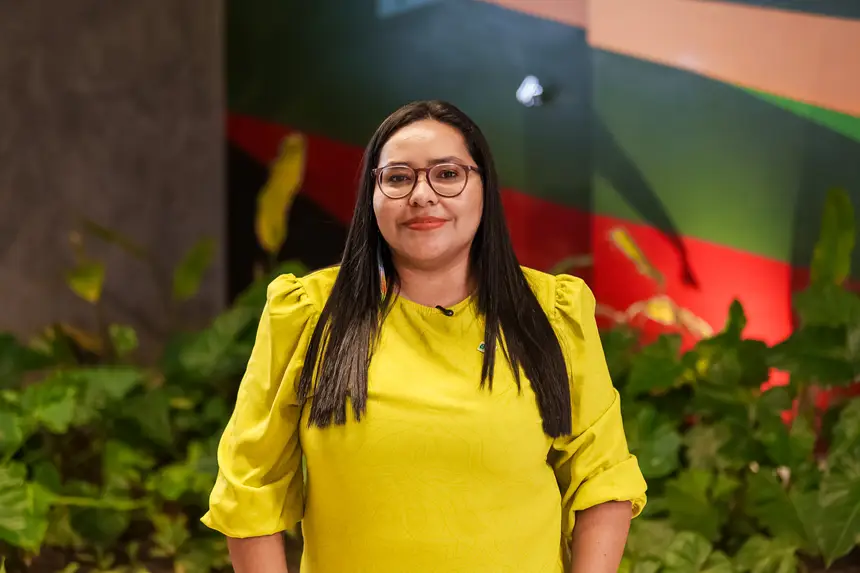Ideflor-Bio presents PROSAF projects and Seed Network at COP30
Initiatives assist in the reforestation of degraded areas, in addition to generating income for family farmers and extractivists

With the theme: "Seed and Seedling Network of Pará: Productive Inclusion and Restoration for a Standing Forest Economy", the Agroforestry Systems (PROSAF) and Seed Network projects of the State of Pará, developed by the Forest Development and Biodiversity Institute of Pará (Ideflor-Bio), were presented within the programming of the Pará Pavilion at the United Nations Climate Change Conference, COP 30, this Wednesday (12).
Both initiatives assist in the reforestation of degraded areas, in addition to generating income for hundreds of family farmers and extractivists, through the management of fruit species from the Amazon. The projects also comprise strategic actions of the Government of Pará to promote the productive chain and bioeconomy in the state. The panel was led by Ideflor-Bio environmental analyst, Danie Francez, who was also joined by Alcilene Cardoso, representative of the Amazon Environmental Research Institute (IPAM).

Articulations - According to Ideflor-Bio's Forest Contracts Manager, Cíntia Soares, who was one of the panelists, the Seed Network is essential to promote forest restoration projects in Pará. "Restoration begins with the planting of seedlings or seeds. And this project comes to reinforce this restoration work through forest concessions, developed by the Institute in the four mesoregions of Pará," she emphasized.
According to the socio-environmental analyst of the International Education Institute of Brazil (IEB), Deborah Pires, the Seed Network has several hubs in the state, which work in partnership with Ideflor-Bio. "Considering the continental dimensions of Pará, the idea is to have several hubs spread across the state, like ours, located in the Marajó Archipelago, and another, located in Baixo Amazonas," she highlighted.
Family agriculture in focus - During the panel, the role of family agriculture was also highlighted, through the PROSAF project, developed by the Forest Chain Development Directorate (DDF) of Ideflor-Bio. According to Ideflor-Bio environmental analyst, Antônio Campos, agroforestry systems play an important role both in the recovery of degraded areas and in generating income for families that rely on family agriculture in the state.

"PROSAF, in addition to planting forests, plants fruit trees, and this generates income for the farmer. Because there is a diversity of fruit species in our Amazon, and this diversity allows them to have fruit available throughout the year," the specialist adds.
Text: Sinval Farias with supervision by Vinícius Leal (Ascom/Ideflor-Bio)















